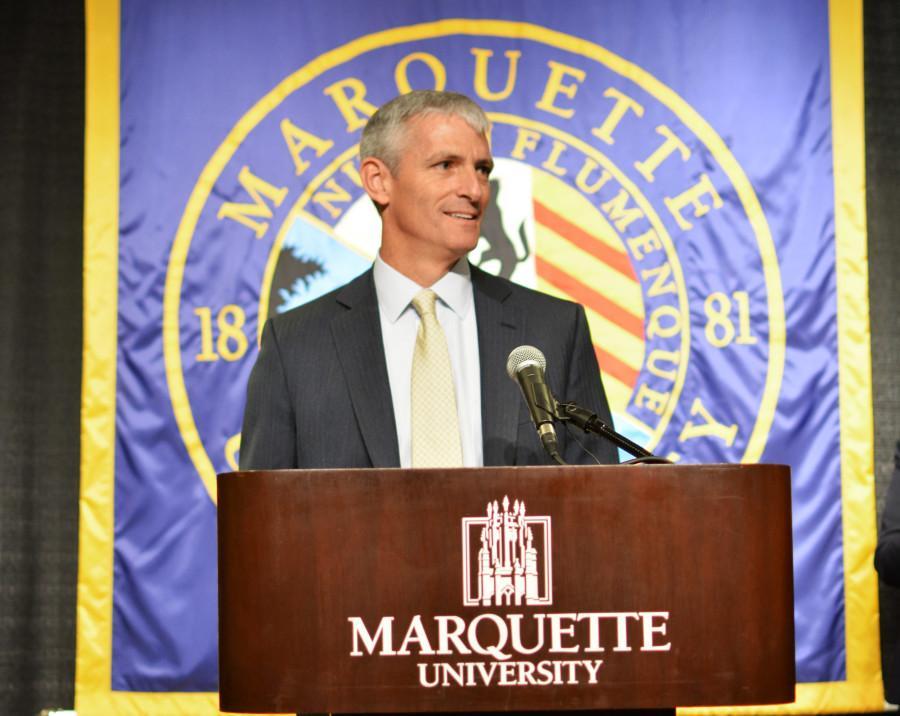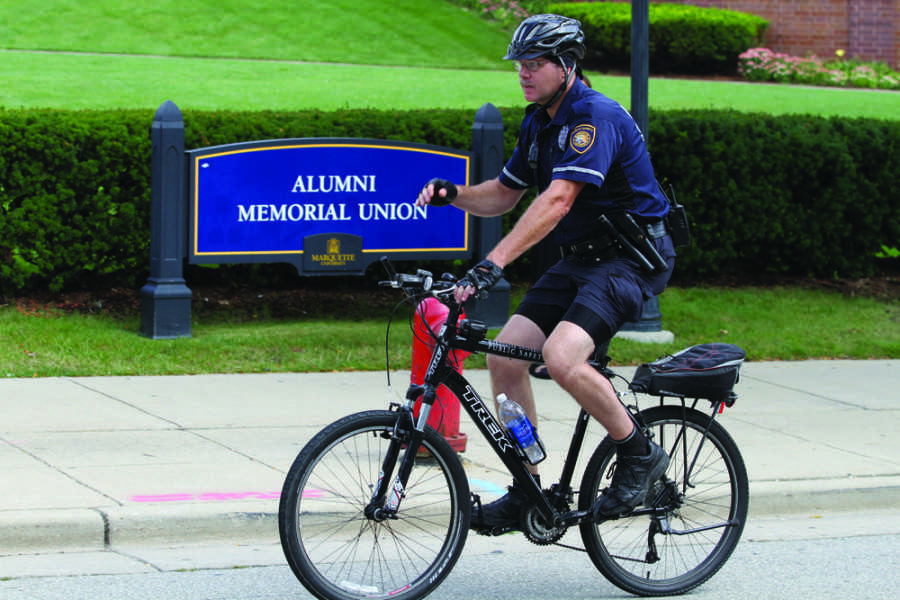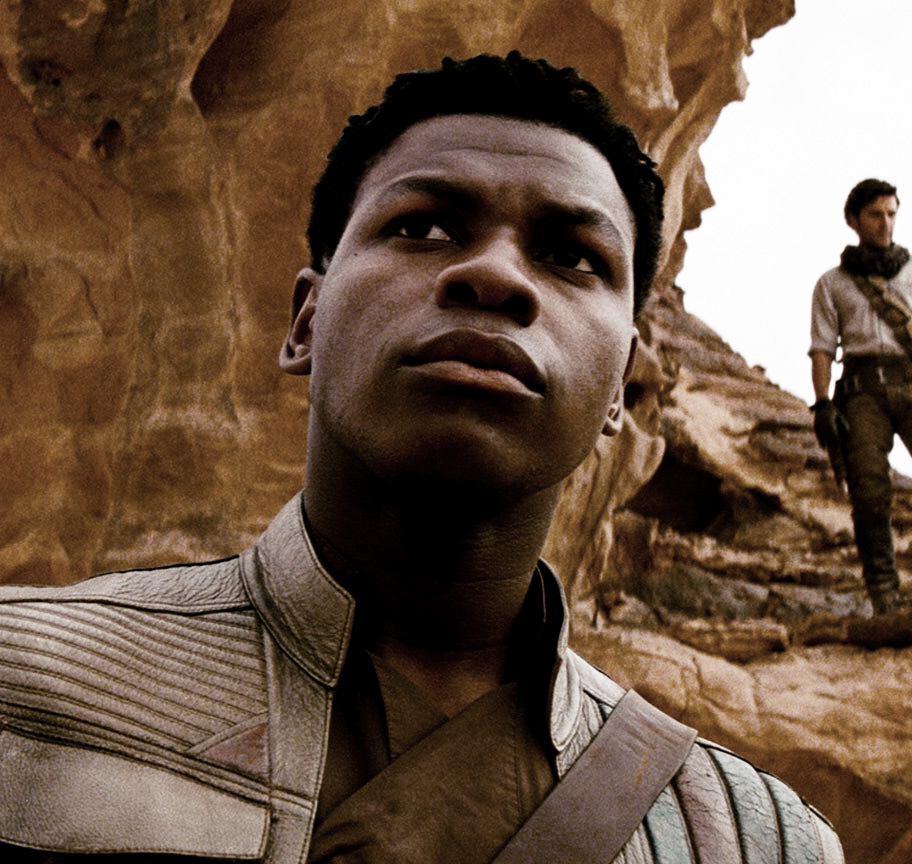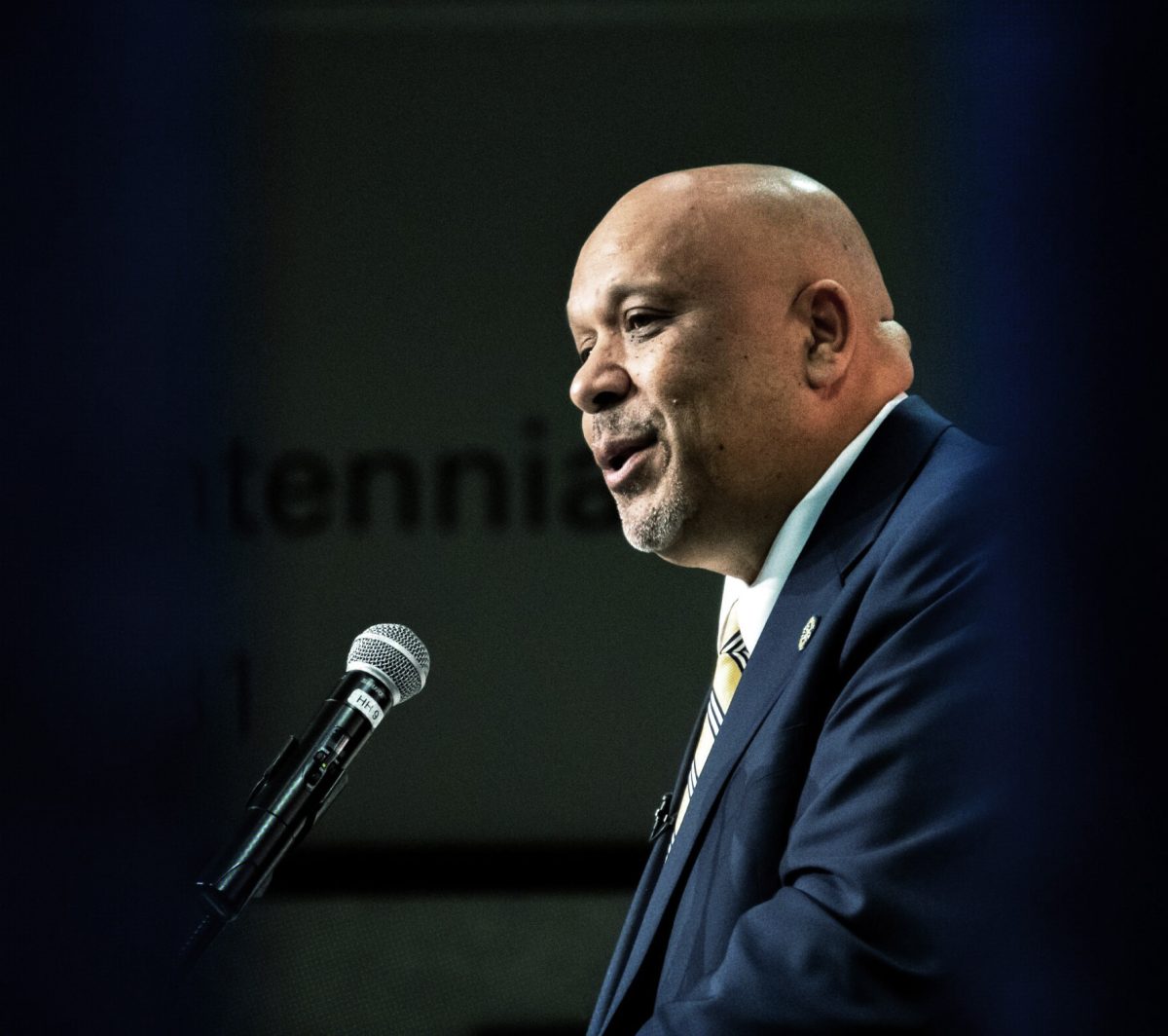And as part of the university’s efforts to improve campus diversity, it will also be conducting a climate study slated to launch online in early spring 2015. Marquette faculty, staff and students will be allowed to take the survey, which will cover a wide range of topics, covering more than just race.
“When you are a university in an urban setting like this, one would think that our community would be a bit more diverse than it is,” Callahan said. “We’ve made great strides over the past couple of years, especially with student recruitment. We can do more.”
The university partnered with Rankin & Associates Consulting to develop the climate study. Cheryl Maranto, co-chair of the climate study working group, said the firm will customize their previous years of experience to Marquette’s environment.
William Welburn, associate provost for diversity and inclusion, will head the development of the plan, and a draft should be ready to share by the end of the 2014-15 academic year.
“This fall, I’m hoping that we will have a couple of public forums to discuss some ideas that I am hoping to put on the table for the university to consider,” Welburn said. “One of those forums would be student-focused, to talk not simply about problems of the institution but to talk more about possibilities. The desired climate and environment that we seek.”
The coming climate study comes after Marquette went through a Higher Learning Commission accreditation visit in fall 2013.
“Accrediting bodies see (climate studies) as yielding tremendous information for understanding (an) institution, better, as opposed to just using anecdotal evidence,” Welburn said.
Maranto said a climate study has been in consideration for years, and a faculty-only climate study was conducted previously as a part of the university’s original gender equity task force.
“I think our climate study in the spring will really help us see where we will need to do additional work — the things we do well and the things we can do better,” Callahan said.
Although the Higher Learning Commission identified diversity as something for the university to focus on, Marquette has seen a big jump in the percentage of ethnic minorities on campus over the past couple of years.
In 2008, non-white students made up about 15 percent of the population, compared with 25 percent last year, according to data from the Office of Institutional Research and Analysis. That makes Marquette’s campus comparable to other Catholic universities in the Midwest like Creighton, Notre Dame and John Carroll.
Rob Gebelhoff contributed to this report.
Story continues below advertisement





